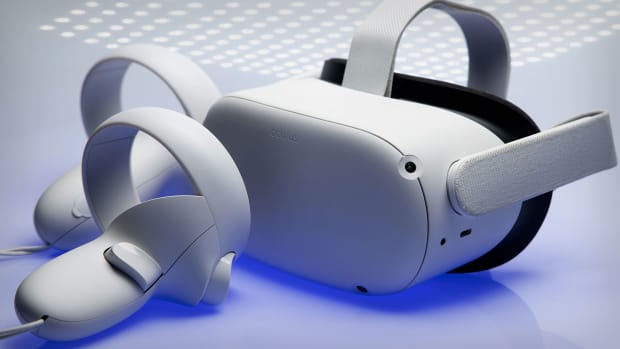After Meta's (MVRS) recent first quarter earnings call, many were left bewildered by some of the company's choices.
While the results it reported were mixed, one glaring item was impossible to ignore: It lost a whopping $10 billion in 2021 from its Reality Labs division.
As Mark Zuckerberg has made abundantly clear at every turn over the last few years, he wants to pioneer the metaverse space using virtual reality as a key tool.
To do so, Meta purchased VR company Oculus in 2014 and rebranded its pioneering technology to its own, changing the name of its flagship headset Oculus Quest to Meta Quest.
The Meta Quest headset sold 8.7 million units in 2021, proving there is audience interest in VR beyond the video game-centric base the Oculus was originally made for.
Meta accomplished this by playing up all the non-game offerings available in the headset, from plentiful exercise apps like "Supernatural" to interactive social platforms like its own "Facebook Horizons."
Now its announced that its newest VR headset is coming this year that's specifically designed for work.
Codenamed Project Cambria, the project was first announced in October 2021 and promises to mirror users' facial expressions in VR for a more realistic experience in the metaverse.

Shutterstock
What New VR Technology Is Meta Debuting This Year?
However, it looks as if Meta could have more than one VR headset in the works.
According to what The Information calls "an internal road map," it plans to debut a total of four new headsets by 2024. Project Cambria will be the first of these.
Meta told TheStreet that while the official price has not been announced, it will be higher than the $800 price point some outlet's previously predicted.
The next two in line are reported to be new versions of the current Meta Quest 2.
These are codenamed Stinson and Cardiff and scheduled for release in 2023 and 2024. It's likely that these headsets will provide higher resolution and be lighter than the Meta Quest 2, which weighs 17.4 ounces.
The final headset is a follow-up to the Project Cambria headset, with a projected 2024 release date.
Will Meta's VR Efforts Be a Success?
With Meta's strong sales of the Meta Quest, it's well-positioned to gain the interest of both the gaming market and those who have purchased the product for other uses with its upcoming headsets.
In order to entice more users outside the video game userbase, however, Meta will have to continue to make the Meta Quest more seamless and less clunky.

Mark Zuckerberg
While the wireless headset has provided the most accessible VR experience so far, it's still too heavy and lacks the crispness of higher-resolution headsets such as the Vive Pro 2.
However, since that headset is much more expensive at $799, Meta needs a way to straddle the line between advanced tech and affordability.
Selling its Project Cambria headset will likely prove to be a much bigger challenge, especially since it will cost a lot more than the Meta Quest models.
Meta has struggled to get users to adopt its vision of working in the metaverse.
Businesses will have to be majorly impressed by the product if Meta has any hope of making it all work.



.jpg?w=600)



